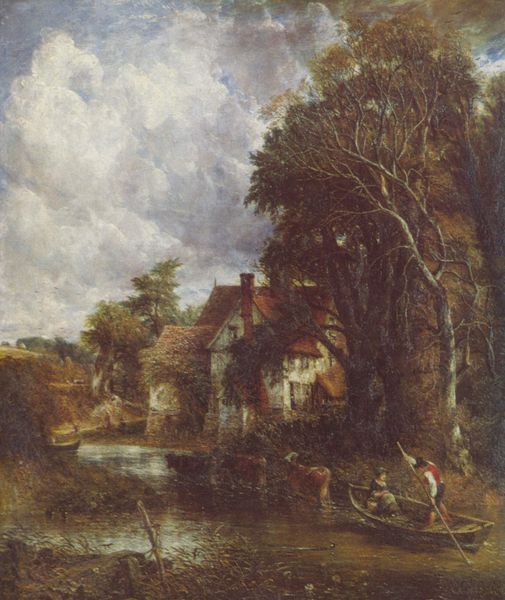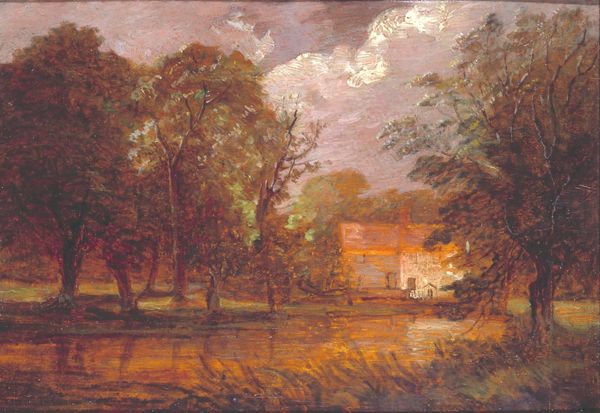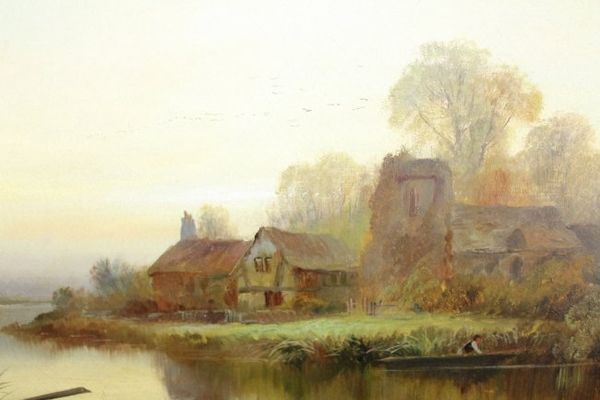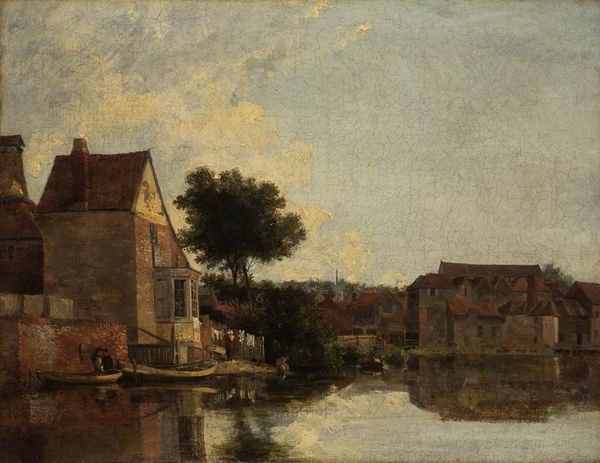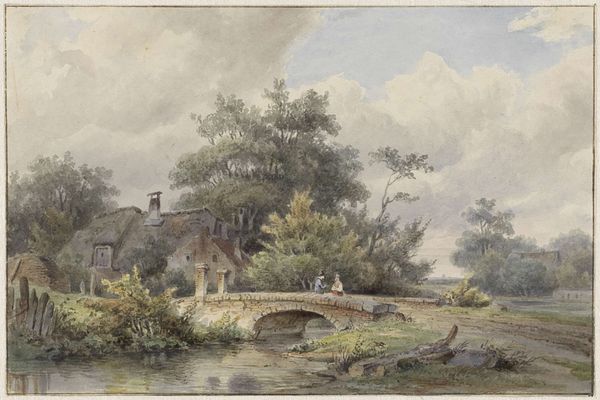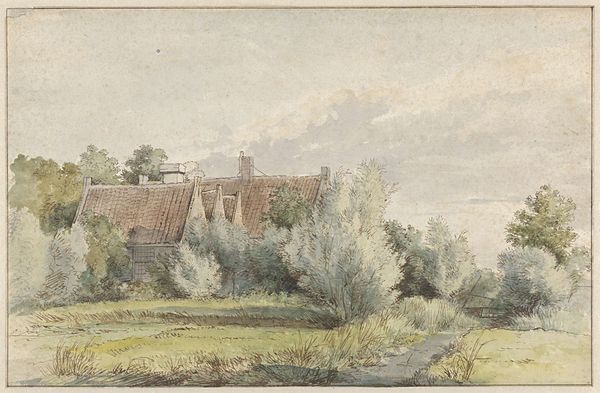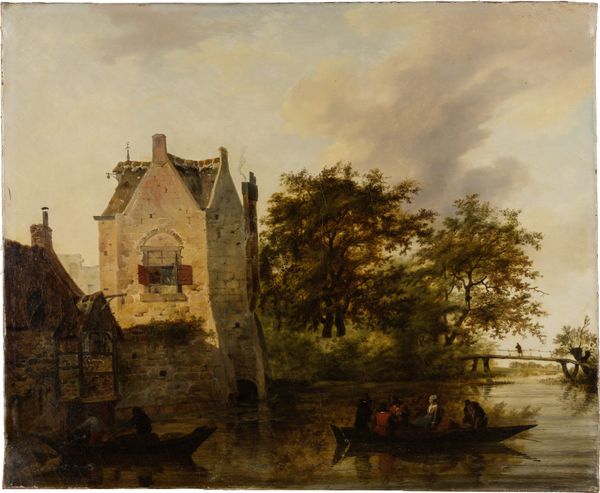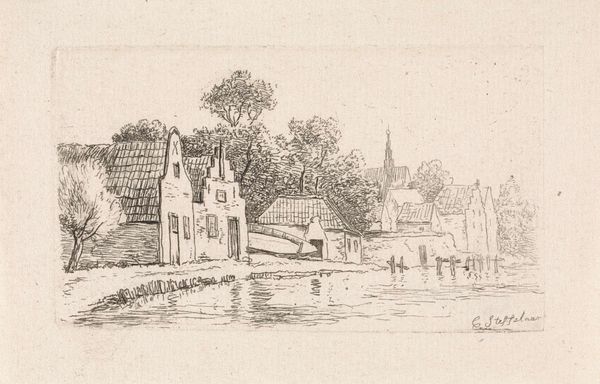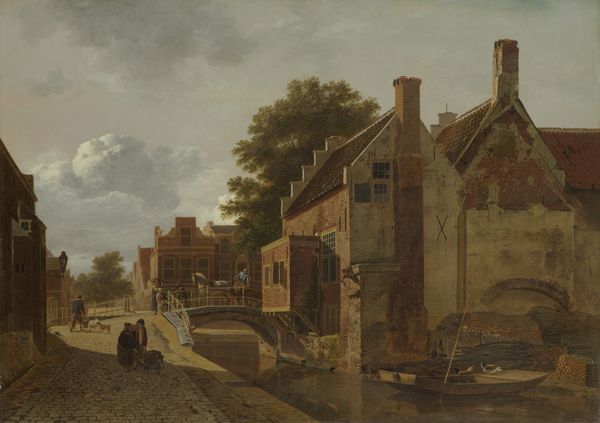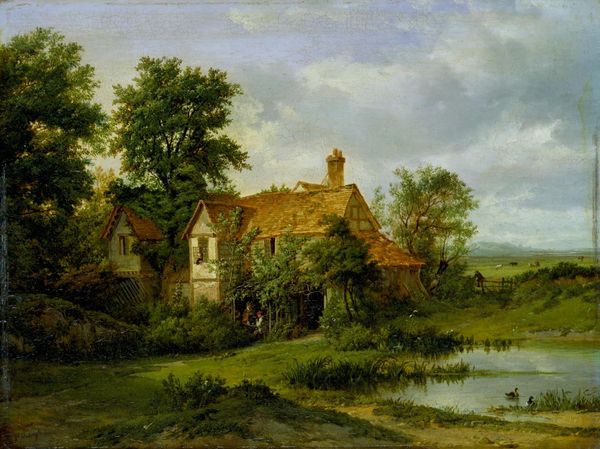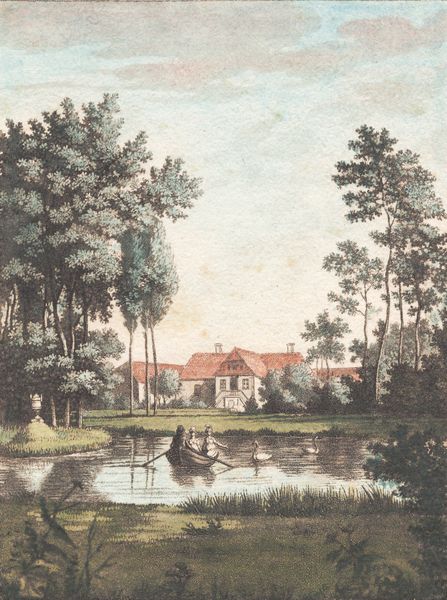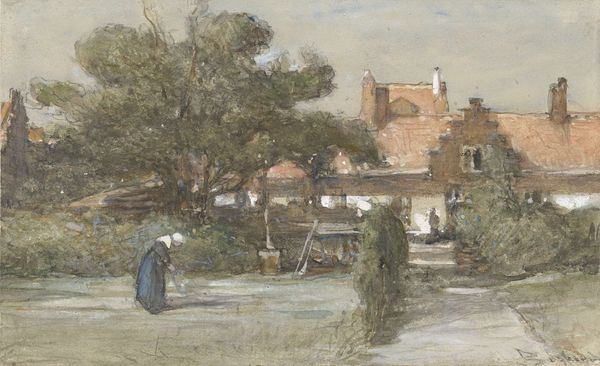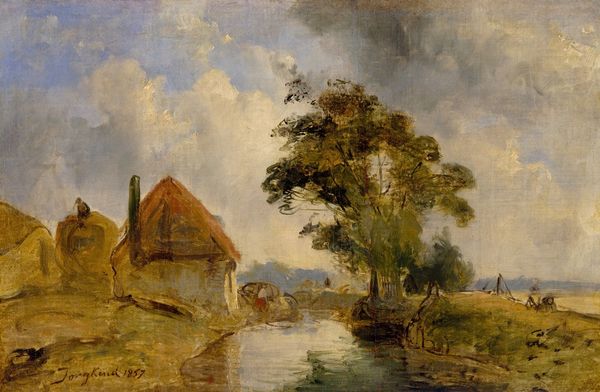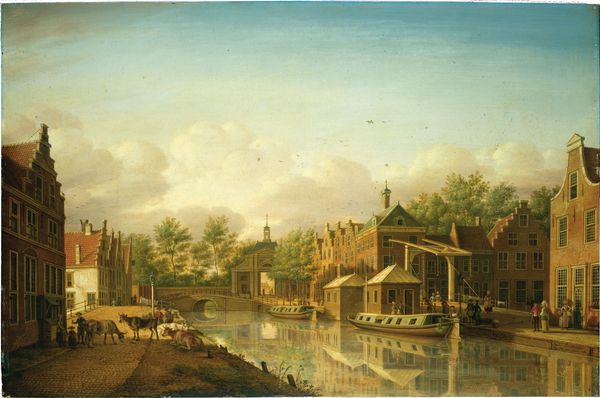
plein-air, oil-paint
#
plein-air
#
oil-paint
#
landscape
#
oil painting
#
underpainting
#
romanticism
#
painting painterly
#
history-painting
#
realism
Copyright: Public Domain: Artvee
Editor: We’re looking at John Constable’s “Flatford Mill,” painted around 1810-1811, using oil paints. There's a certain warmth in the light, but also a structural rigidity with the defined building edges, and I wonder what you see when you look at this piece? Curator: I notice primarily how the artist uses color to create a sense of depth. The arrangement of these painted elements – building, water, and foliage – constructs the visual space. How do you view the painterly technique in this work? Editor: The brushstrokes feel quite visible, almost like the scene is actively being formed. It's less about perfect realism and more about capturing a feeling. Does that imprecision factor into how we read the buildings in contrast to the land? Curator: Precisely. The painting resists photographic accuracy, engaging, instead, with its own materiality. Note, too, how the application of pigment redirects your eye – light reflecting off a surface then contrasting against an unlit section; can you detect a conscious interplay there? Editor: Yes, it makes it very active. Almost like a living version of stillness... This focus on the components allows for a reading about their relation as much as about the place, itself. Curator: Precisely! A study of its formal properties – brushstroke, light, color, line – reveal both artist intention, and clues towards its aesthetic effect. Editor: It’s amazing how dissecting the components has opened a new way to consider it! Curator: Indeed, and by examining those properties it opens this painterly rendering into much more than the thing it’s representing.
Comments
No comments
Be the first to comment and join the conversation on the ultimate creative platform.
